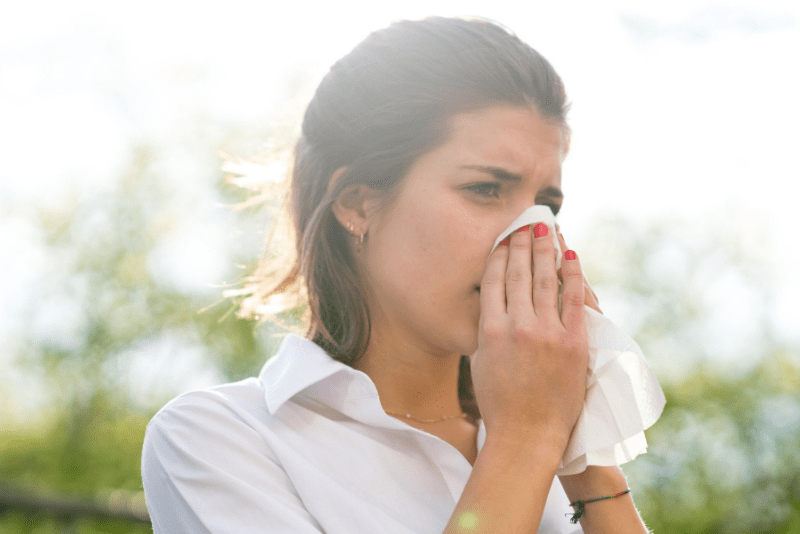From learning their ABCs and 123s to making new friends in the recess yard, there is much to look forward to as we send our kids back to class. However, while a new school year can be exciting for parents and students alike, it can also be daunting for those whose child is living with allergies…but it doesn’t need to be that way.
At Charleston Allergy and Asthma, our board-certified allergists have put together this lesson to help you school your child’s allergies before the first class bell even rings.
What are school allergies?
There are no specific allergens only located in a school setting, but instead, those that are more commonly found in this environment. As with all allergies, understanding your child and their symptoms are key to keeping them safe in the presence of potential triggers. Your child may be more likely affected in a school environment if they suffer from the following:
- Food Allergies: With school cafeterias providing daily lunch, keeping tabs on the foods your child eats can be more difficult than when they are at home. Food allergy reactions can be more common as a result, with nearly 18% of children under the age of 18 experiencing food allergies and approximately 90% of these allergies as a result of the Big Eight: milk, eggs, wheat, soy, tree nuts, peanuts, fish and shellfish.
- Environmental Allergies: Like in the home, open windows, leaky pipes and unclean surfaces can create a host of environmental allergens that can stir your child’s symptoms and affect their studies. Common allergens can include mold, pollen, dust mites, cockroach and more.
- Pet Allergies: Not only are they cute, but they can also help teach responsibility at a young age! However, furry classroom pets like hamsters and gerbils can also stir up discomfort in children with pet allergies. These critters are not common to every teaching environment, but parents of allergy sufferers should be aware of their presence before the school year starts so they can plan accordingly.
New environments can mean first-time contact with new allergens, and, through exposure, you and your child may discover an unknown trigger.
If your child regularly complains of common allergy symptoms (itchy eyes, runny nose, sneezing, sinus pain, etc.) while in school, a board-certified allergist can conduct allergy tests to shed light on the cause of these discomforts.
How can I protect my child while they are in school?
Sending your child off on their own can be tough for any parent, with or without allergies. However, this is all part of the growing experience! Rest assured that you can continue to play an active role in your child’s safety while in school. Take these steps to ensure your little allergy sufferer is learning in a clean, comfortable environment:
- Make an appointment with your board-certified allergist. Knowing your allergies is always the first step in protecting yourself from reactions. By working with a board-certified allergist, you can identify your child’s triggers and create a treatment plan that will help protect them even while you’re not around. Ask your doctor about immunotherapy treatments, which are considered the closest thing to an allergy cure .
- Discuss a treatment plan with faculty and staff. You may not be present in the immediate moment, but rest assured that compassionate and competent adults are there to provide care if orwhen a reaction strikes. Meeting with your child’s teacher, administrators and school nurse to discuss allergies and treatment plans can create a reliable network of support for your child and give you a sense of ease. For families with food allergies, make sure you have met with your board-certified allergist and have an up-to-date Food Allergy Action Plan going into the new school year.
- Tour the classroom. You may also ask the school if you can tour your child’s new classroom before the year begins. Taking a walk through their learning space will allow you to analyze the environment for the presence of any allergens, such as class pets.
- Take control where you can. You cannot control every aspect of your child’s day to day. However, packing lunch is one small step that can allow you to skirt potential food allergy reactions entirely. Packing your child’s lunch allows them and you to know that everything they’re given will be safe for them to eat. Some parents also prefer to purchase food allergy identifiers for their children to wear, such as bracelets.
- Prepare your child for when reactions strike. Life may be full of surprises, but we can still be prepared for when they pop up. Taking time to speak with your child about their allergies can help them keep calm and communicate with their adult if a reaction occurs. Teach your child about their triggers, come up with phrases to help them communicate their symptoms and help them understand their treatments. Above all, let them know that they will be safe because you and the adults in their life are looking after them.
Put allergies in detention!
At Charleston Allergy and Asthma, your family’s safety is our top priority. If you or your little one are experiencing untreated allergy symptoms, our team of board-certified allergists is here to support you on your journey toward a symptom-free life. Contact us today to schedule your visit with a trusted allergy doctor at one of our Lowcountry locations.




